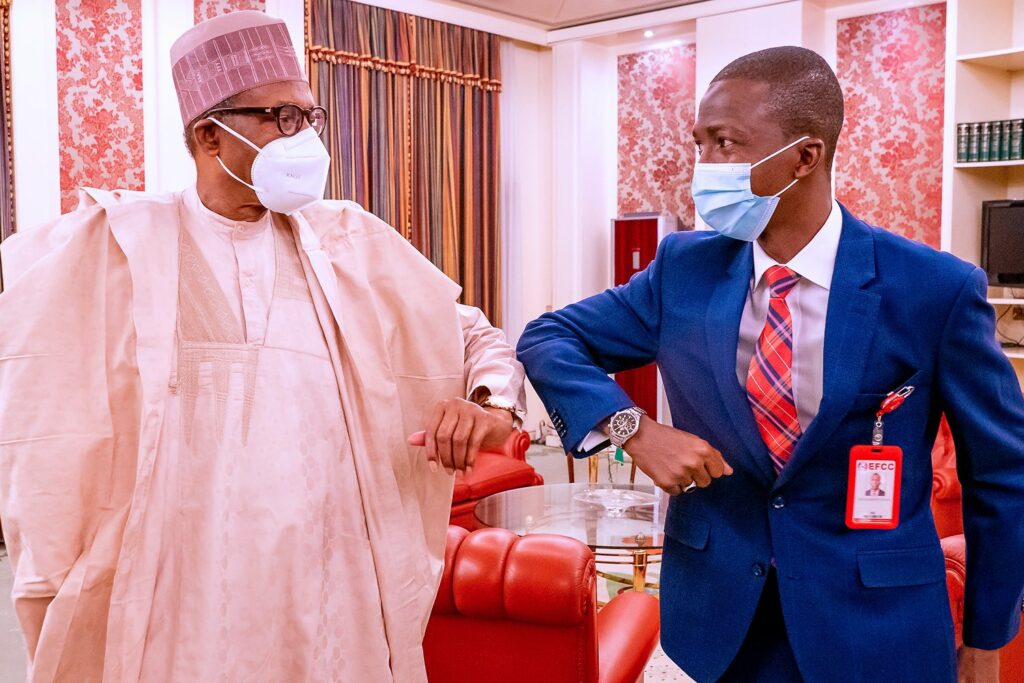The Federal Government says the President Muhammadu Buhari administration’s policy plank of fighting corruption is unwavering and on course.
The Minister of Information and Culture, Alhaji Lai Mohammed who said this at a media briefing on Thursday in Abuja, said the administration had put in place structures that would not only check corrupt tendencies but make it unattractive and costly.
Mohammed highlighted the fundamental strategy of the administration in the fight against corruption and the successes recorded by the various anti-corruption agencies in justifying his position.
“The Buhari administration has taken bold measures to streamline cumbersome bureaucratic processes in the implementation of government policies, check corrupt practices and ensure accountability in the implementation as well as delivery of these policies.
“These reforms are all inclusive, cutting across all spheres of governance and not excluding even the private sector.
“They included the Treasury Single Account (TSA), Integrated Personnel and Payroll Information System (IPPIS), Petroleum Industry Act, Financial Autonomy for State Legislature and Judiciary (2020), Whistle-Blower Policy, Assets Recovery, Justice and Law reforms.
“Nigeria’s membership of the Open Government Partnership as well as the various instruments at the disposal of the Federal Government to track, trace and stop the flow of illicit funds used in financing terrorist activities within Nigeria, among others.
“For those who may say that some of these reforms, like the TSA, predate this administration, our response is that what’s the use of a policy that is not implemented?
“This administration has implemented these reforms with fidelity, and the reforms have made a huge impact in preventing corruption,’’ he said.
Specifically, the minister said the TSA system has been implemented in more than 90 per cent of all Federal MDAs.
He said the TSA has resulted in the consolidation of more than 17,000 bank accounts previously spread across Deposit Money Banks in the country monthly savings of an average of N4 billion in bank charges.
The minister said against stiff opposition, the Buhari administration expanded the coverage of IPPIS.
He said the use of BVN to verify the Federal Government’s payroll on the IPPIS platform had so far led to the detection of 54,000 fraudulent payroll entries.
Mohammed said the whistle-blower policy had helped in the cleansing of IPPIS, compliance on TSA and enhanced the Procurement Act 2007.
He said that as at 2020, a total sum of N700 billion had been recovered through the Whistle-Blower Policy.
The minister said the Petroleum Industry Act (2021) had helped the country to reform the laws regulating its oil and gas sector and blocked all loopholes hitherto being exploited by corrupt practitioners.
To check terrorism financing, the minister said the administration deployed a plethora of tools, including the Money Laundering Act, 2004, the EFCC Act, 2004, the ICPC Act, 2000, Department of State Services (DSS) and the Nigerian Financial Intelligence Unit (NFIU).
He said the tools had helped to deal with the issue of corruption, money laundering and terror financing.
“On Assets Recovery, the Presidential Advisory Committee Against Corruption (PACAC) has assisted anti-corruption agencies in devising clearer strategies for obtaining forfeiture of assets suspected to have been fraudulently acquired from state coffers before prosecuting suspected culprits.
“The President also signed an Executive Order in May 2020 that unequivocally granted financial autonomy to State Houses of Assembly, State Judiciaries as well as the Local Governments as the third tier of government.
“The order also mandated the Accountant-General of the Federation to deduct from source, funds due to state legislatures and judiciaries from the monthly allocation of states that fail to comply.
“The financial suffocation of LGs is a major enabler of insecurity and terrorism in the Nigerian countryside,’’ he said.
According to Mohammed, one of the most difficult tasks for any government is to fight corruption, because when you fight corruption, corruption will fight you back!
He said that was the reason why naysayers had continued to belittle or dismiss the administration’s anti-corruption efforts.
